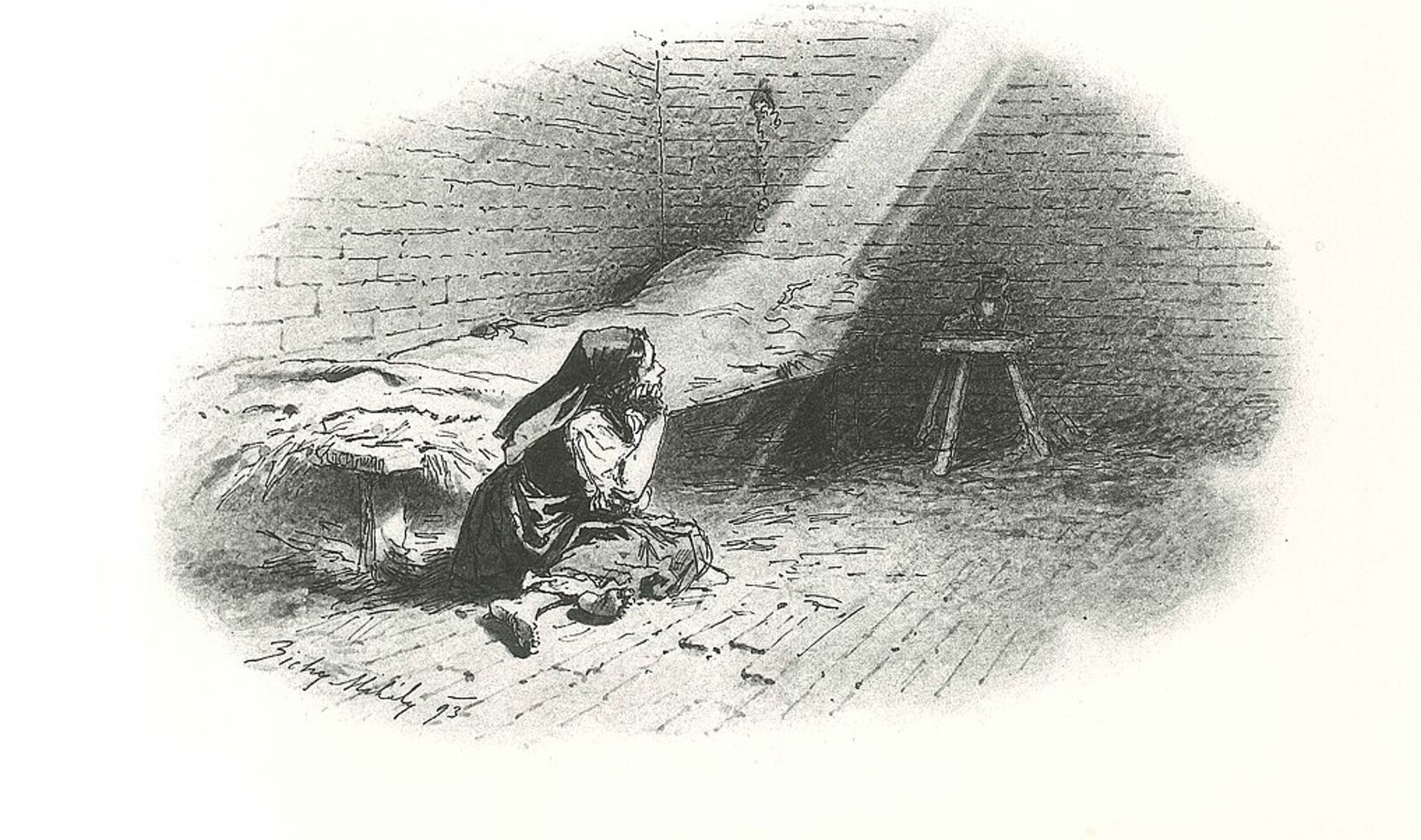

The Motif of Crime and Punishment in János Arany’s The Ballad of Agnes
In Hungarian literature, one of the best-known works dealing with the theme of crime and punishment is János Arany’s The Ballad of Agnes (Ágnes asszony). Arany was a virtuoso of the ballad form, finding in its conciseness and deliberate obscurity a perfect medium for portraying dark crimes and even darker punishments. In Arany’s ballads, punishment is usually psychological in nature: the sinner, in a Shakespearean fashion, goes mad under the weight of guilt, and the haunting memory of the crime becomes an unending torment.

In this poem, the poet recounts the story of a peasant woman who murders her husband and gradually descends into madness. The tale is told in a simple, folk-like tone that at times expresses pity and at others horror, yet it perfectly captures the unfolding psychological process.
Agnes is caught by the law while washing her bloodstained sheet in the stream after committing the murder. Alone in her prison cell, her mental balance collapses; she forgets the crime itself and becomes obsessed with the idea that she must wash her sheet until it is white again.
Recognising her quiet madness, the judges release her. From then on, Agnes spends the rest of her life endlessly washing the rags of her sheet as the village madwoman.
The ballad allows for several layers of interpretation. The deepest reading sees Agnes as more than a mere folk ballad character or the tragic heroine of an anecdote – she becomes a symbol of fallen humanity. Her sin lies in her complicity and instigation in a crime of passion: the murder of her husband. From her judges she learns that it is her lover and accomplice “who blames” her. The man, who never appears directly in the poem, thus takes on the role of accuser – that is, of the Devil himself. He tempts the ‘weak human being’ into sin and then denounces her before God, in order to bring about her damnation.
In this sense, the ballad operates within a metaphysical realm: its true subject is the relationship between sin and punishment, human guilt and divine mercy. God, in a paradoxical act of grace, saves Agnes by casting madness upon her – for through her insanity she is able to atone, and may thereby escape eternal damnation.
Arany’s concept of crime and punishment transcends the boundaries of human law, elevating tragedy into the metaphysical domain.
References:
Our Great Figures – János Arany, compiled by Dr Klára Margócsy.